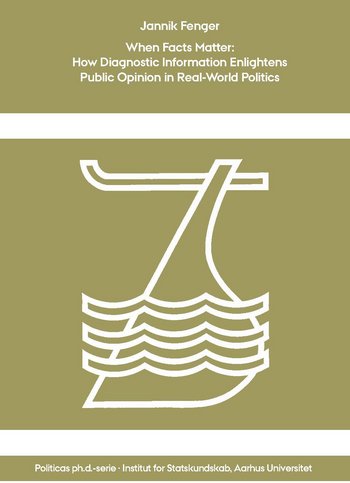Jannik Fenger
Jannik Fenger | When Facts Matter: How Diagnostic Information Enlightens Public Opinion in Real-World Politics

A well-functioning democracy relies on citizens acquiring key facts and using these to inform their political opinions. Without public opinion being based on facts, at least to some extent, it is difficult to see how citizens can provide qualified signals to policy-makers or hold politicians accountable. However, while a firm link between factual knowledge and public opinion seems intuitive in theory, it is difficult to assess empirically, as many political facts are subject to interpretation without clear attitudinal implications. Moreover, citizens are often exposed to facts in a complex information environment with competing forces of influence and limited attention to politics. The dissertation examines the role of diagnostic facts—clear, factually correct information relevant to political issues—in shaping public opinion in citizens’ real-life information environment. By drawing on a range of panel survey data collected before and after important political issues became salient, the dissertation shows that diagnostic facts play a substantial role in public opinion formation. Many citizens both learn diagnostic information and use the facts to markedly change their political opinions. The findings challenge the foundational view of voter irrationality in the public opinion literature. At minimum, the results of the dissertation should be understood as a general call not to overly exaggerate the lack of voter competence. But more importantly, the findings show that voter competence has less to do with psychological factors and barriers and more to do with the information environment and the political context citizens engage in when forming political opinions.
![]() Ophavsretten tilhører Politica. Materialet må ikke bruges eller distribueres i kommercielt øjemed.
Ophavsretten tilhører Politica. Materialet må ikke bruges eller distribueres i kommercielt øjemed.